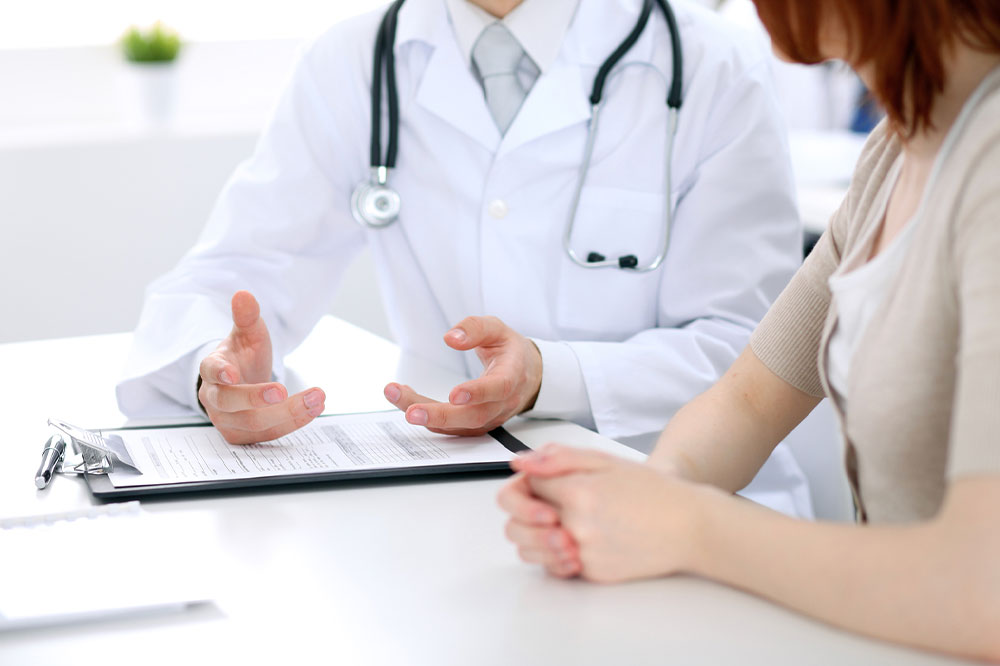Important questions to ask an oncologist after diagnosis

Receiving a cancer diagnosis can be a worrisome premise for many. This life-altering condition can make people feel overwhelmed, causing them to shut themselves off from any new information. However, taking an active part in treatment planning can help one achieve better outcomes and reduce side effects. Doctors with special training in diagnosing and treating tumors and cancers are known as oncologists. Here are some questions to ask your oncologist about cancer:
About the diagnosis
It is important to understand what tests are being conducted to diagnose cancer and how you can prepare for them. Here are some questions to ask at your initial appointment:
- What diagnostic tests or procedures do I need? How often do they need to be conducted?
- How can I prepare for these tests?
- What will these tests tell us?
- When will I get my results, and how will I receive them?
- Will I need to repeat any tests if I seek a second opinion?
About cancer
Upon diagnosis, it’s important to completely understand the type and stage of cancer, as this will help determine your treatment plan. Here are some questions you must ask:
- What type of cancer do I have?
- Where is the cancer located?
- What is the stage of this cancer? What does this mean?
- How does this stage affect the rest of my body?
- What are the risk factors during this stage?
- Do certain genetic factors play a role in increasing the risk of this cancer?
- Is my immediate family at risk of developing this condition too?
- What lifestyle changes can I make to improve my quality of life before, during, and after my cancer treatment?
About the treatment
Once you have a better understanding of the condition, it is time to formulate a treatment plan. Oncologists typically involve patients in this process. To better participate in this, asking them the following questions can help:
- What are the treatment options for this type and stage of cancer?
- Are they administered individually or in combination with other treatment options?
- Where can I look for more information regarding these treatment options?
- What is the goal of the treatment – is it to eliminate the cancer, alleviate symptoms, or both?
- What are the pros and cons of each of these options?
- Which treatment do you recommend for me? Why?
- When should we start the treatment process?
- Do I need to be admitted to the hospital for this treatment? For how long?
- What are my chances of recovery with this treatment path?
- What are your parameters to check if this treatment is working for me?
- Will a clinical trial (research study) be appropriate for me?
- Where can I find more studies about this stage and type of cancer?
- Where will I go for treatment?
- How will the treatment be administered?
- How long will each treatment session take?
- How many treatment sessions do I need?
- Should someone accompany me during these treatment sessions?
- How will I feel after the treatment session? Will I be able to continue my daily activities, or do I need to factor in time for rest?
- Will I be able to go to work regularly?
- Will this treatment affect my appetite?
- Does the food I eat impact the course of my treatment?
About finding a specialist
In some cases, a specialist may be necessary. Ask your oncologist the following questions for clarification:
- Do I need a specialist for my treatment?
- Who will be a part of my cancer care team? What role will they play?
- Should I speak to another doctor for a second opinion on the best treatment plan for me?
About support services
Cancer treatment generally involves long-term care. During this time, many questions may pop into one’s mind. Asking an oncologist whom one can approach when looking for support services can help alleviate some of the anxiety that may arise in the process.
- What are the support services available to me?
- Can I get in touch with you or other members of the team in case of any concerns?
- Whom can I call if I have questions during non-business hours?
- Where can I find resources for children/teenagers/young adults/seniors over 65?
- Who can help me manage my cancer care costs during the course of this treatment?
- Who handles health insurance concerns in your office?
About the side effects
Cancer treatments can be intense and have serious side effects. Ask the doctor the following questions to understand what these may be and how one can prevent them.
- What side effects could this treatment have?
- What side effects may occur during or between treatment sessions?
- Are there any side effects that require immediate healthcare attention?
- Will this treatment affect my ability to have children?
- Can these side effects be prevented or minimized?
- Can this treatment affect my sex life? If so, how and for how long?
About remission and recurrence
While most people want to focus on recovery, it is also important to know if the cancer may relapse and some precautions to take. Here are some potential questions to ask:
- What is the chance that the cancer will come back? Are there any signs or symptoms to watch out for?
- What follow-up tests will help me monitor my health?
- How do I get a summary and survivorship care plan to keep as a part of my health records?
- Who will lead my follow-up care?
- What survivorship benefits are available to me and my loved ones?
Before visiting an oncologist, note down all the questions mentioned above. The health team should make time to answer them in brief. This will also help you alleviate some of the stress associated with the diagnosis and treatment plan for the condition.








